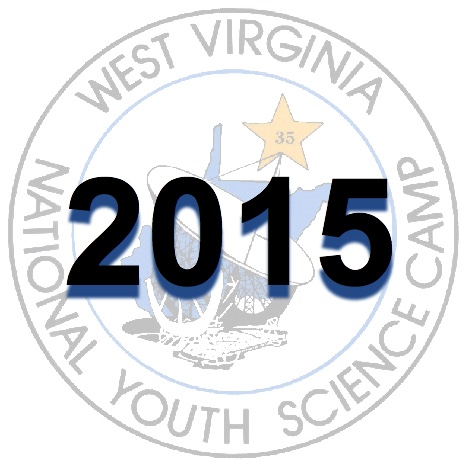
The NATIONAL YOUTH SCIENCE CAMP is an honors program for two high achieving high school students from each state in the United States and others from around the world. This residential summer experience is held in a rustic setting in West Virginia’s eastern mountains and has honored and challenged over 5,000 participants since it began in 1963.
PROGRAM SUMMARY
Lectures and Interactive Seminars: Prominent speakers discuss current topics in science and other disciplines and have ample opportunity for informal interaction with students attending the NYSC.
Directed Studies: Visiting and resident professionals from diverse fields of study conduct three-day, in-depth research investigations in lab and field studies.
Program Areas: Visiting and resident experts lead hands-on experiences in the natural science, physical science, and computer science laboratories along with co-curricular activities in arts, music, wellness, and athletics. The surrounding million-acre Monongahela National Forest serves as a learning resource for field studies in wildlife ecology, botany, water chemistry, scientific illustration, and other areas. Delegates may also participate in activities at the nearby National Radio Astronomy Observatory and Canaan Valley Institute.
Delegate Lectures and Seminars: NYSC delegates are encouraged to share their own research with their peers and with visiting and resident experts who may be specialists in that field. Delegate research topics have ranged from airplane wings based on dragonfly anatomy to DNA sequencing to antilock brakes for mountain bikes.
Backcountry Adventure Program: Resident specialists and scientists lead small group day trips and overnight excursions into the Monongahela National Forest, which foster an appreciation of nature and develop leadership and teamwork skills. These adventures include backpacking, caving, rock-climbing, mountain biking, and kayaking.
Informal Activities: Opportunities abound for students to pursue personal interests on an informal basis. The Program Areas (labs, studios, athletic fields, and natural areas) are available most afternoons for individualized instruction or group projects involving fellow delegates, staff members, and visiting specialists.
PROGRAM FEATURES
National Representation: Graduating high school seniors representing each state and several countries are selected to attend the NYSC through state and country-based competitions. Selection criteria include demonstrated achievement in science, technology, engineering, and mathematics and participation in school and community activities, with leadership potential.
Physical Environment: NYSC facilities include science laboratories, a computer center, and arts and music studios located in West Virginia’s ecologically diverse, geologically complex eastern mountains. The area provides an outstanding natural laboratory for teaching and experimentation. Isolation from the usual distractions of cities or college campuses provides a nurturing atmosphere.
Intensive and Non-Competitive Learning: The schedule offers several weeks of near around-the-clock learning opportunities in a challenging, yet friendly setting. Noncompetitive learning encourages teamwork and cooperative skills; science is the common language that allows delegates to learn from peers, staff, and visiting experts.
Broad Exposure to New Fields of Science: The NYSC program provides a broad spectrum of natural, physical, and applied sciences including biology, physics, chemistry, mathematics, geology, astronomy, environmental science, engineering, medicine, space science, and technology. Additional emphasis is placed on ethics, humanities, and the arts.
Washington Visit and U. S. Senate Luncheon: Delegates travel to Washington, D.C., for four days to study national science concerns in meetings with scientists and with behind-the-scenes visits to sites such as NASA’s Goddard Space Flight Center, the American Association for the Advancement of Science (AAAS), the National Academy of Sciences, and Smithsonian museums. A highlight of this visit is a luncheon with members of the United States Senate, traditionally hosted by West Virginia’s delegation; all Senators are invited to attend. The luncheon features a presentation by a prominent national speaker. Recent keynote speakers have included Dr. Neil deGrasse Tyson, host of PBS’s NOVA scienceNOW, and Mr. Aneesh Chopra, the Chief Technology Officer of the US.
GOALS
*Honor high-achieving science-oriented students
*Introduce new scientific topics, especially those not typically covered in traditional secondary curriculum
*Encourage lifelong learning in science, technology, engineering, and mathematics
*Demonstrate relationships among the sciences and between science and other disciplines
*Prepare students to face challenges of college, career, and life-long education
*Develop creativity, instill self-confidence, and foster camaraderie among future leaders
The NYSC is operated by the National Youth Science Foundation®, a nonprofit organization. For more information please visit http://www.nysf.com, call (304) 205-9724, send an e-mail message to office@nysf.com, or write National Youth Science Foundation, Post Office Box 3387, Charleston, WV 25333-3387. To apply, go to http://apply.nysc.org.